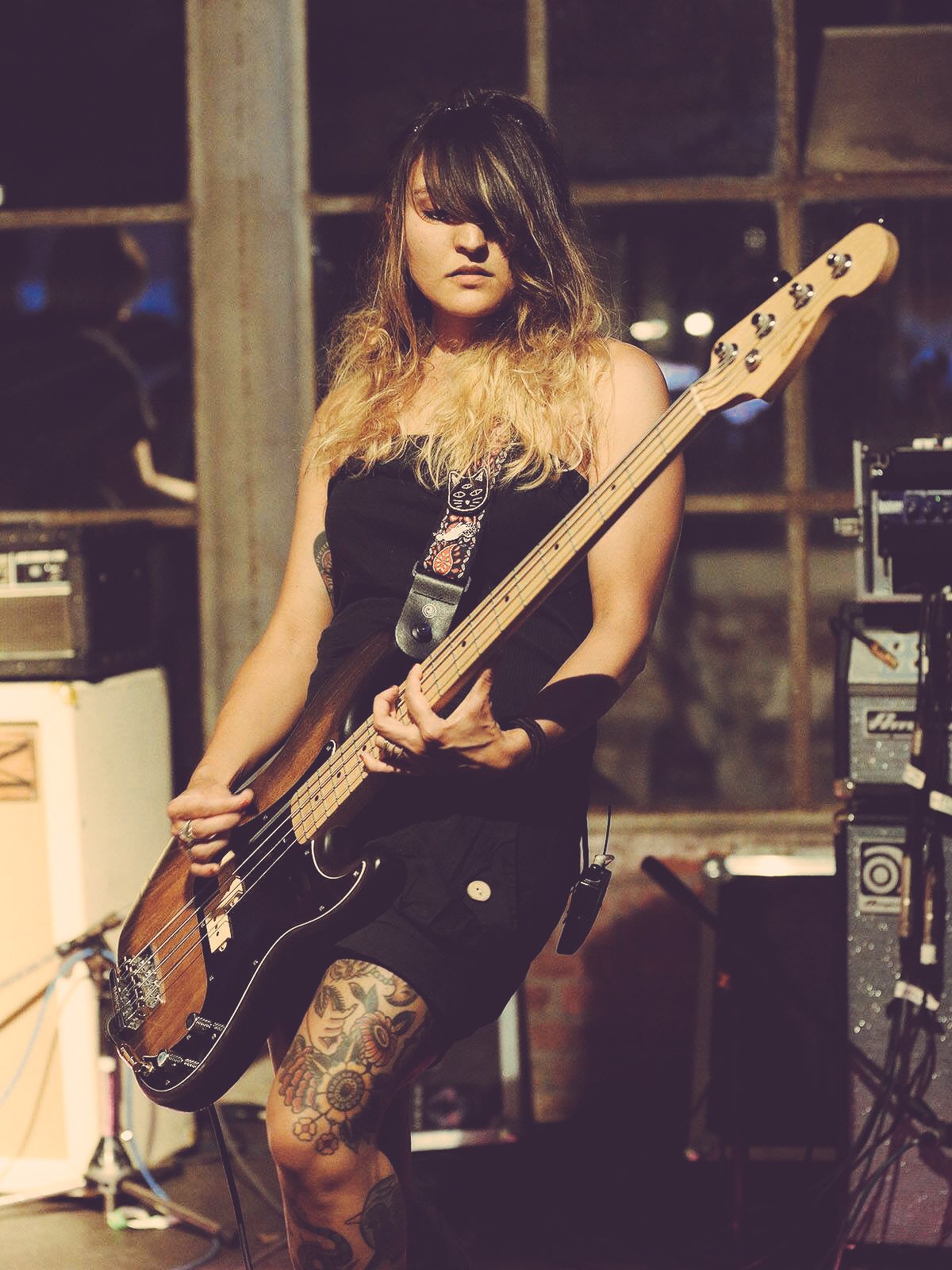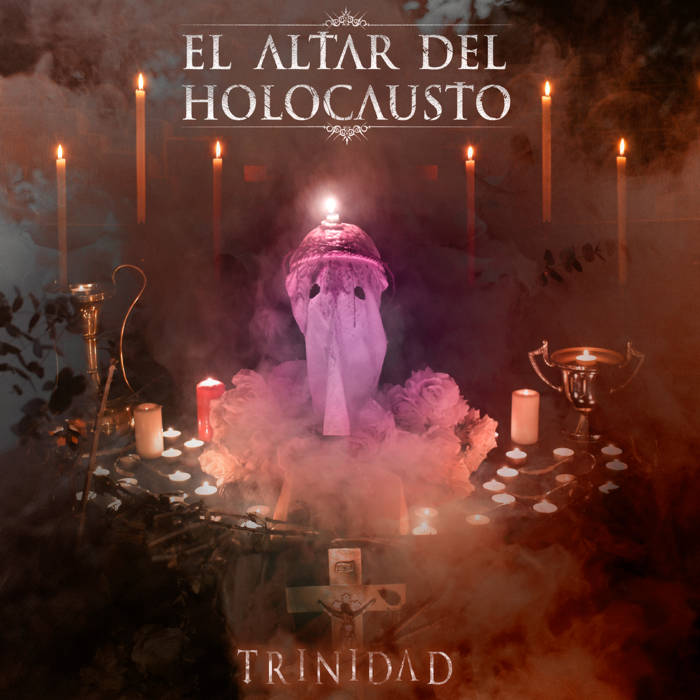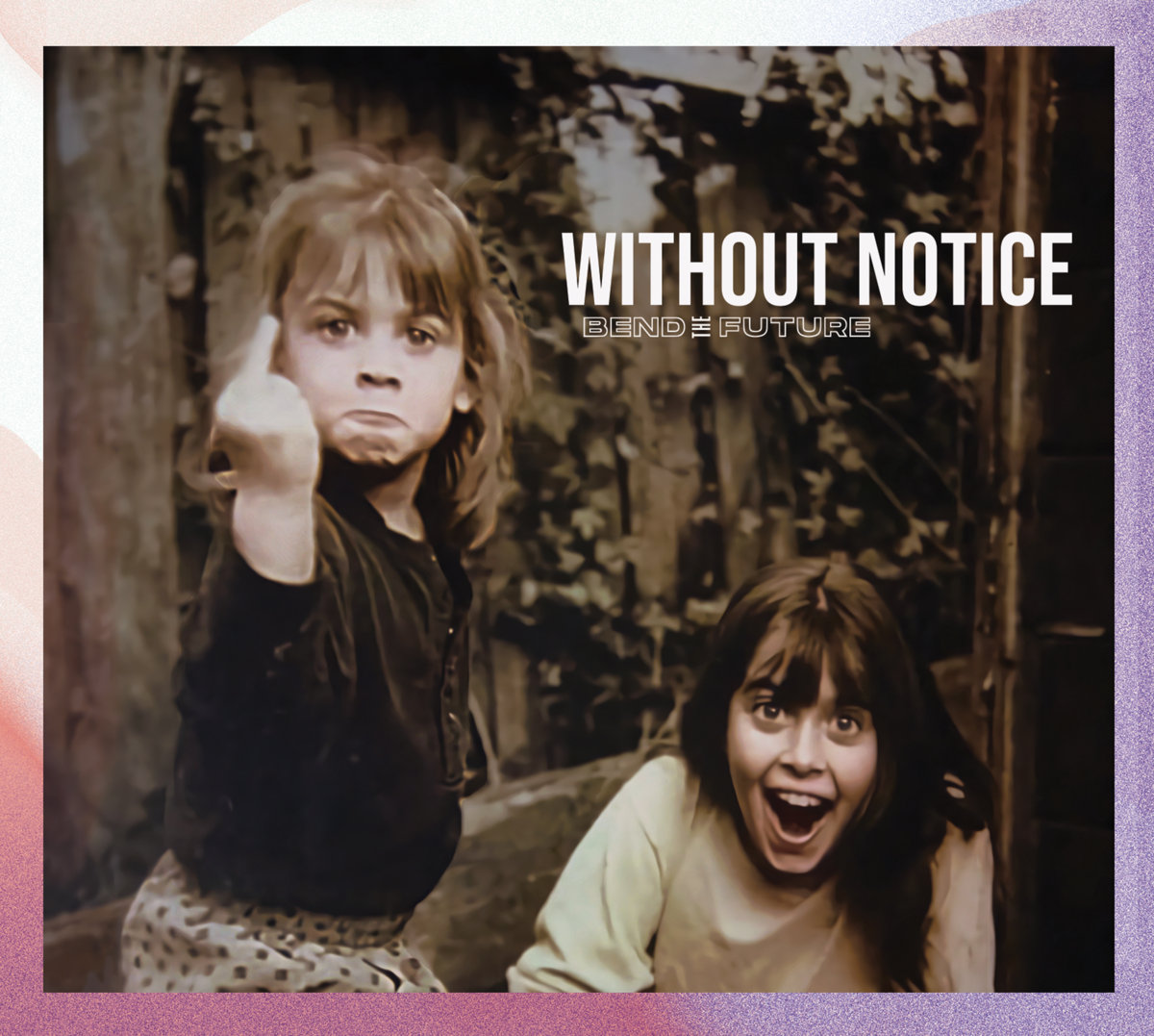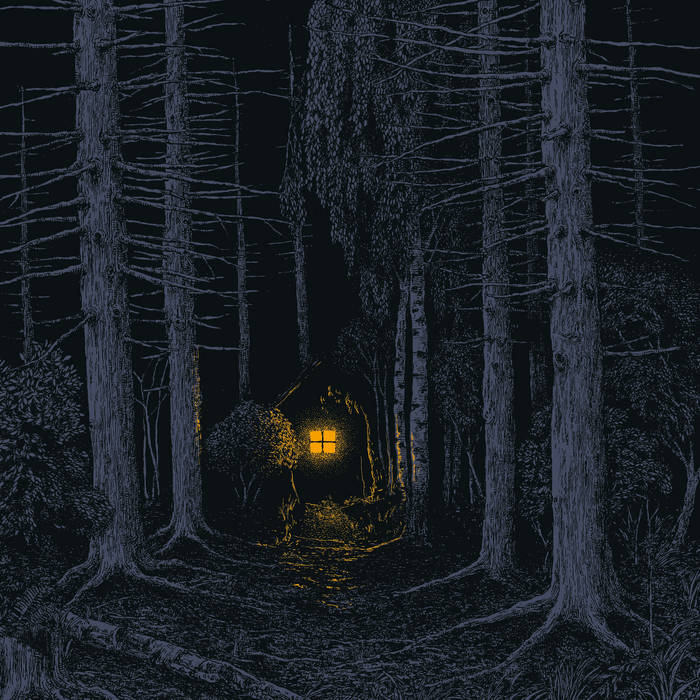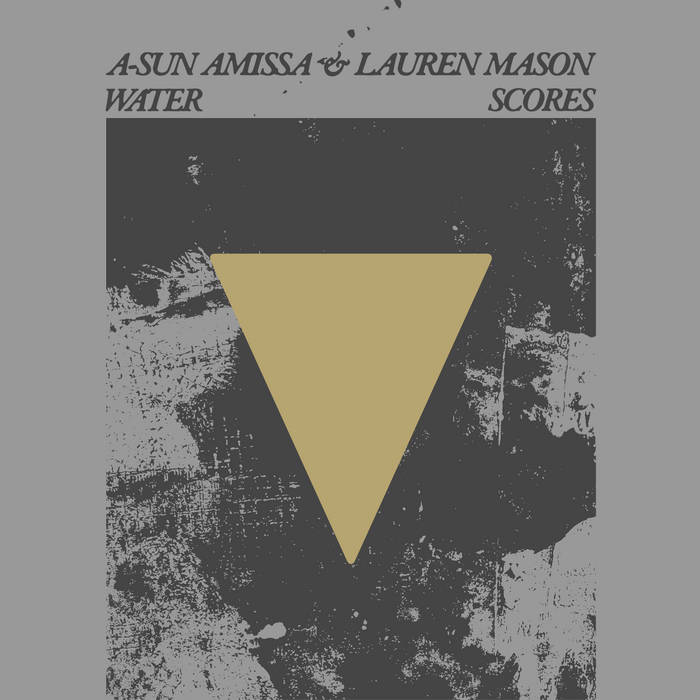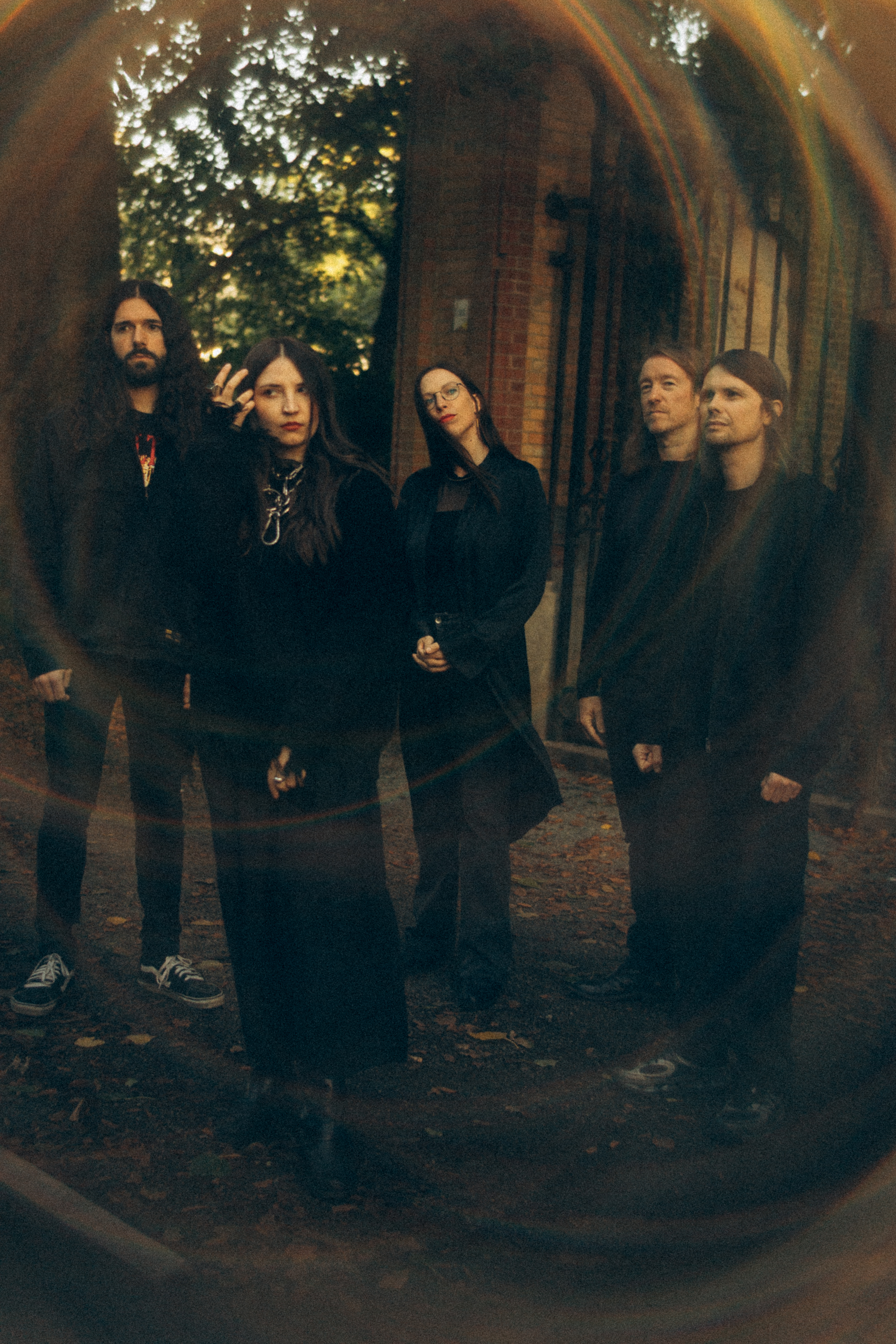After a few technical problems, Isa of Slow Crush and me sat down to chat a bit about her band, herself and women in the rock world, the Belgian music scene, the end of Holy Roar Records and – of course – our quick question rounds as well.
MoA: I always associated you with being “just” the vocalist in Slow Crush and not also the bass player – so do you witness this perception a lot by people who have not had a chance to see the band live? Honestly, I’ve never thought of it before, I’ve never considered it being mistaken before just because Slow Crush is the first band I sung in, so I’m used to always being the bass player and I think that maybe feels a bit natural to me. To be perceived as the bass player or to write that down in my CV first, being a bass player and then being a vocalist. So I haven’t particularly come across that, no.
Yeah, I haven’t had the chance to see you on stage, even though two or three years ago you played in Darmstadt, close to where I live. But I didn’t get no tickets, because I was a few minutes too late. Actually that gig in Darmstadt was a very memorable show. It is a fantastic venue and the team we worked with was really, really friendly. But on the flipside, it was also an amazing experience because our guitar player fell ill with a stomach bug just before we had to play Darmstadt. So we actually played as a three-piece and his brother came and picked him up from the hotel. That’s why it’s so memorable for us as well.
Does your (self-)perception change in any way, now that you’ve been the vocalist for Slow Crush for several years now? Do you get used to it? I mean, I get used to it. And I understand how that [being a bass player is more] easily replaceable when it comes to me, it’s my voice, something unique to myself, and the other guys can’t replicate it, whereas the bass is kind of universal instrument that anybody could play and it would still sound similar. I understand that that link is easier to make than the bass player – but I’m still the little girl that likes to hide behind my instrument. And in previous bands it was easy for me to hide next to or behind my stack of amps, but now I can’t do that anymore so I just have to “hide” behind my microphone, that’s all. (laughs) But it is, having played so many shows over the years, so it is something I am able to switch off now, it is not something that scares me as much as it did in the early days. That being said, now we’ve not really played in front of real people for a year so who knows what it’ll feel like before the first show. It will probably be like a “first time ever” again. It’s really like starting over again to even know how to stand on a stage; it is a bit nerve-wrecking. We have a few live-stream recordings or live-sessions.
And there is gonna be another big one coming soon, right? Yeah, we did a good one last week in an impressive venue so it will be nice when it’s all put together and when it’s all edited together and out there. But still even those kind of shows, even though there’s nobody there, it’s still being recorded, and so I hope I don’t trip over my cables this time. The nerves still play a part, but I suppose that’s natural.
How did you get into music and especially this kind of music? Well, with your experience of the Philippines and the Filipino culture [we had a short chat about it before the start of the interview], you know that music is inescapable. My mum was always singing to me or putting music on in the background, or they even put the radio on to get me to sleep at night, sort of in the background. So music has always been a part of my upbringing. I got into this particular music – being British as well, it sort of is part of the culture as well. I was very much into Britpop when I was younger, which isn’t exactly the same, but still it has those elements of the early shoegaze period, the 80s/90s shoegaze; Smashing Pumpkins were also always on in my group of friends. We were always sharing mixed tapes with Pumpkins and Deftones. And all of those elements, I think, can be heard in our music as well. The 90s vibe is really part of what we play.
Interesting, because that’s the same feeling that I have when listening to, for example, Aurora; it sounds as if it was taken straight out of “Alternative Nation” from the 90s, straight out of MTV. Yeah, I spent many of my formative years watching “Alternative Nation” recorded on VHS, so yeah, it was a great show.
So now you’ve been part of Slow Crush for several years and of course been involved in the songwriting. How should I imagine the writing process for Slow Crush? Jelle is usually the main idea bringer, he’ll start off with a riff that he has been working on – everybody can come up with something and we sort of bring it together, we share it at rehearsals – but Jelle is usually the guy that comes up with the ideas and when he’s got an idea for a riff or a song-structure then we’ll get the drummer in to jam with him. We tend to lay down a sort of rough demo track as soon as we can. It’s a lot easier to record everything so you don’t forget anything before the next rehearsal and we layer it up that way. We are very fortunate to have this rehearsal space where we can work on it together. All of us live very close now, so we can get together when it’s safe to do so. Lately we’ve been focusing on the next album, we’ve been to the studio to record that in January and now it’s in the mixing stage. So we are focused on getting all that done, and once that is all chilled out, then we can continue writing album number three. You gotta do something with your time, I suppose. All this lockdown situation isn’t always for the worse, because a lot of people have learned how to not push themselves, what priorities are the most important. Thinking back to one year ago: normally we would have left on a two-month-tour a few days after the lockdown happened, we had all planned and then we would have to do the whole festival season and we would also have gone to finalizing in between touring and Open Air season and recording right after the festivals. And I figure at least one of us, if not all of us would have burnout, a complete mental breakdown. So for us, quarantine couldn’t have come at a better time.
So when you are already in the mixing process? What has influenced your writing now? What can we expect to come from Slow Crush next? What is gonna come next? Well, we still got the Slow Crush sound, we still use a Glow Fuzz Pedal and there are obviously elements that are still carried on from Aurora, but of course we had a line-up-change with a different drummer, different second guitar player, so there will be a noticeable difference in the dynamics. As for the songwriting itself, it could be perceived to be a little on the darker side. But it still got that contrasting of darkness and lights. So yeah, it’s gonna be a little bit different, but you will still hear that it’s Slow Crush.
When looking at descriptions of your band you basically come across nearly every genre – from Dream-Pop to Post-Metal. What do you consider Slow Crush to be? Everything in between. We are anything that you want us to be, our sound is just so encompassing that you can find elements from all those in there. And that is what we are trying to achieve – an all-encompassing sound that will just envelop you whatever your favorite genre is – you will find parts of it in our music. Honestly, it is kind of a shame that you are pigeonholed to one specific genre in order to sell records. But in the end, I feel that music is something very personal. Something that should be looked at objectively. If you like it, what does it matter, what genre it is from. All of us listen to a wide variety of genres and that’s probably why all those different little elements or touches can be heard. We can be whatever you want us to be.
A few days ago we had the International Women’s Day – do you see an increase of women in this genre? That is hard, because does one know all the bands in a genre? There are so many bands out there, it’s hard to be able to put a percentage of how many female musicians in them or how many have transgender musicians or male musicians or anything really. And again it’s part of the whole labeling thing: What does it really matter if you like the music? And with me being perceived as the singer: You can only really put a gender on a voice because of how it sounds. Because if it was a female guitar player you wouldn’t necessarily hear that. I feel that it’s a shame to have to use a label to bring forward the fact that there are female musicians out there because it’s still a minority or not as equally known. That also has a lot to do with the way that women and young girls are educated what they’re able to do. Our label boss at Church Road Records, Justine Jones, who is also the singer in Employed to Serve, made a very good point: When you’re at school as a girl you don’t get shown all of these cool things that can be done in the music industry, so your perception as a young girl or woman of what you can do is limited to being the singer in the band, so the technical side isn’t always shown or you are thought not to have an interest in learning that stuff. So, I think that it should become less gender-role-based in schools. It’s not opened up enough for all subjects because we are perceived not to have an interest in those more manly jobs.
You’ve already mentioned Justine, are there any other female artists that you like and follow? That’s a hard question, I mean I have so many female artists who are just friends of mine, so. Also non-binary people. Another important aspect of playing these shows, being part of this scene is, what I found personally is that these places that we play are inclusive. I don’t know whether it’s the genre that we play that makes it more of an inclusive environment or if it’s just the scenes that we end up in or whether it’s the venues perhaps, the organizers, the promoters, they are all very open. It is a community, really. So I personally haven’t experienced any horrible disasters just because I’m a woman, or also just because I’m not a man, so I’m very thankful for that. Also because I know that there are a lot of women out there that still are facing that gender-based bias.
So when we talk about that – you formerly were on Holy Roar Records. How devastating was it to get to know about what he did? Yeah, that were a couple of sleepless nights for everyone on the label. Just because it was thrown out there on the internet and you get no forewarning. And all of a sudden you see that this is not good and you read one message and it’s so hard-hitting, that you’re like “Okay, what now?!” So, we knew we’re good friends with everybody on the label, we knew that they would make the right decisions or make sure that the right steps were taken to get to where it needed to be gotten to in terms of stopping of his interactions with the bands and the label. It was a week when we got to know more and more people on the label, as us and all of the other bands and band members we had a big Holy Roar team chat – so that was a good way to get everyone together under these horrible circumstances. It is very disappointing and very scary that someone you have been so close with could do things like that, especially coming from a scene, where you felt very inclusive, very safe. You perceived yourselves to be in a safe place when you play these shows but unfortunately there are still people out there that take advantage of such situations.
Would you have stayed with the label if he had left or was it more or less clear that you had to leave that name behind? Well, it was a case where the label did not exist anymore, so everybody left the label. If it had continued with the team minus Alex, then it would have been in a different circumstance. But knowing the team it probably would have had a name change in any case, just because it might have been necessary. There could have been steps taken to clean the name, but it all depends on what kind of press goes out, what kind of statements are made by the label, to be able to justify continuing, I suppose. But those are all what-if’s that are all irrelevant now.
So, you are basically playing in a Belgian band, you are the only member that is not from Belgium. Would you say, that Slow Crush in some way benefits from the huge interest in the Belgian music scene? I think it’s weird, because we tend to play everywhere but Belgium. So I think we played more in Belgium now during quarantine than we did in our whole career. I don’t know, I’ve never seen Belgium to be the go-to-country for music, but I do agree we have some really good bands here, for being such a small country too, as well. In a way, I think where a band is from is also getting drawn on too frequently. Or where the band’s label is from. It’s similar to the whole gender-thing, but even in a way a bit racist or nationalist labels on something. But that’s in a way also how the music industry has always been. The bigger bands are from the US or the UK and also that most popular songs are sung in English, just because that’s a more international language. I think it’s just easier, right? I think [the huge success of the Belgian music scene] has to do with the internet – Belgian bands are just more accessible internationally nowadays, which again has its pro’s and con’s. Because you have perhaps a bigger reach, but you can’t control that reach to get to the right people. So it’s got two sides: Having a bigger playground is good but if the Facebook algorithms or Spotify algorithms even decide that you don’t get the airplay for your possible number one fan that doesn’t know about you, then you lost out. Coming back to the music scene in Belgium. At least before the quarantine, I think the Belgian audience is very radio-driven. People are into alternative music, but you have to work hard to find those alternative bands or find the streaming platforms to listen to that music. But since the quarantine our number one alternative radio station Studio Brussels has daughtered streaming platforms, one of which is a streaming site for harder music, heavy music. And you also have some other radio stations that are becoming more popular now that also play heavier music. So I think it is in a way broadening the public reach for less commercial things.
So when talking about Belgian music – you did a collaboration with Sons Of A Wanted Man. How did that happen? We toured with them in 2018, and the style of Black-Metal that they play has that gazey vibe to it and they are incredible musicians as well and they have an incredible light-show, so it was a pleasure to watch them every night. So apparently the singer had had an idea to do a collaboration with another vocalist before we did the tour and apparently it just clicked in his head the moment we played on stage like “Okay, I want her on the album!”. But it was only months later or even a year later that they actually approached me and asked to do it.
Just a few quick questions – I give you two alternatives and you have to choose. And maybe explain in a short way why. Okay, first one: My Bloody Valentine or Slowdive? My Bloody Valentine. I think they have a more aggressive feel than Slowdive.
Soul or HipHop? HipHop. And the only reason I’m saying that are the Beastie Boys and that is thing I listen to from these two.
Winter or Summer? Summer. I can’t handle the cold.
The beach or the mountains? The beach cause beaches are warmer. But I like the mountains, too. You know what – put me on a beach in the Filipino islands next to a volcano. There you go, got both worlds.
You go to a bar – do you order beer or wine? Beer, cause it’s a bar. And the only bars I have been to in the last couple of years was at shows and it’s more of a beer atmosphere. Beer or cocktail, the local favourite. I will try whatever is on the suggestion list.
Vinyl or CD or streaming? Vinyl, come on. It’s got so much more character, it forces you to be 100% committed to it. You can’t go away or you cannot listen to it.
Grunge or BritPop? Now I have to say Grunge. I think discovering new bands I would go for the grungier bands. I have heard enough BritPop in my teens to last me a lifetime. I could probably still sing along to them. Is there still one of those bands that you can really enjoy? You know, I was around in the whole Oasis-Blur-war. But I like both of them. At the time I probably was a bigger fan of Blur but I can appreciate Oasis, like I can put the whole Oasis discography on now and sing along to every song and enjoy it.
Not regarding time and place – is there a concert that you would like to visit or would have liked to have visited? Hmm, it would have been good to have seen Nirvana at some point. I think that would be the only thing really on my bucketlist. I think the day that Kurt Cobain died is sort of something that sticks in everyone’s memory.
And with that the author of these lines has nothing more to say than listen to more Slow Crush, Aurora is still a fantastic record that not enough people have listened to! Thanks to Isa for taking her time and keep an eye out for Isa’s Spotify list which we will feature in a few weeks!

